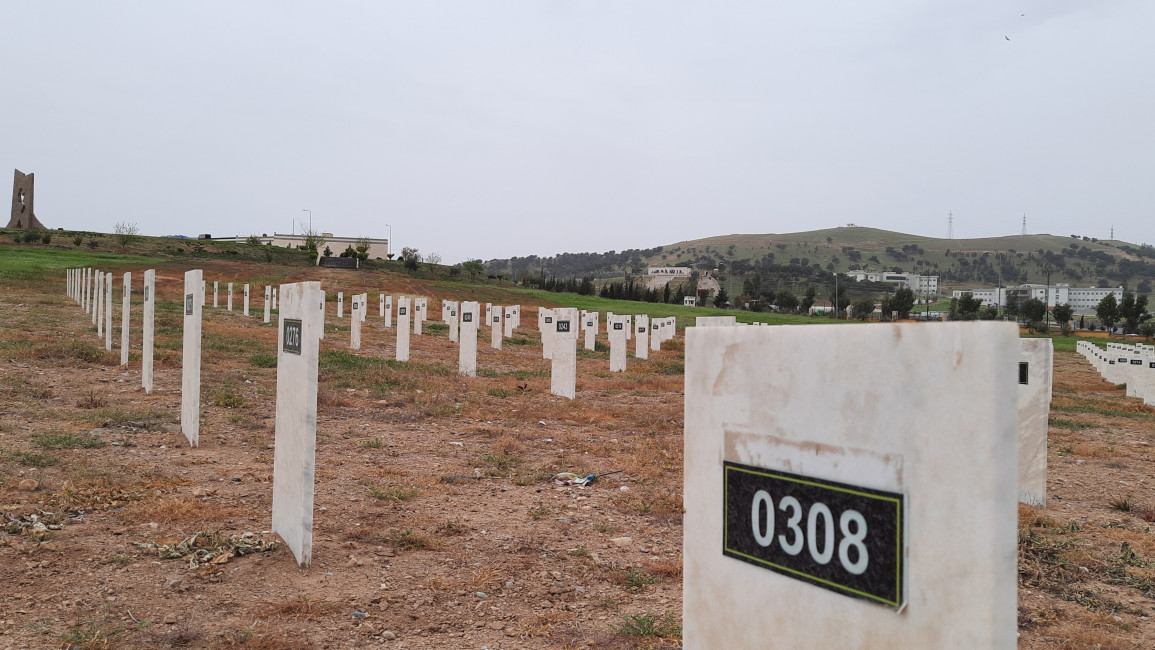Angry crowds expel KRG minister from Anfal massacre commemoration
Survivors and relatives of victims of the Anfal massacre on Thursday boycotted an event to commemorate its 34th anniversary, as well as expelled Kurdish officials from the ceremony, in protest of ongoing failures by Kurdish authorities in providing basic services or support attempts to pursue recourse over the massacre.
In 1987, as the Iraq-Iran war was winding down, Saddam Hussein's regime launched a large-scale military campaign in Anfal against Kurdish villagers who were supportive of the various Kurdish peshmerga rebels. Consequently, between 50,000 to nearly 200,000 people were killed, including women, children and the elderly, many of whom were buried in mass graves across the southern deserts of Iraq.
Early on Thursday, the KRG Minister of Martyrs and Anfal Affairs, Abdulla Haji Mahmoud from the Kurdistan Socialist Democratic Party, attended the Anfal Monument in Chamchamal town and was about to address the families of Anfal.
"The minister's speech was very long, and relatives of the victims of the Anfal massacre did not let him finish it, because people are angry with the KRG and do not want to listen to over-repeated words without action," a son of one of the victims of Anfal atrocities, who was present in the scene and requested anonymity, told The News Arab during a brief phone interview.
"People are asking for basic services of water, electricity and job opportunities," he added.
According to live videos by Rudaw Kurdish media outlet, relatives of the victims of the Anfal massacre appeared angry and started throwing stones at the visiting Kurdish minister, forcing him to exit the stage surrounded by heavily armoured security forces.
"I have participated in today's commemoration of the Anfal massacre, but after 34 years we are still demanding justice from the KRG, who only remembers the families once a year," Adil Majid, the only survivor of his family from the massacre, told The New Arab.
"Relatives of the victims of the Anfal genocide are angry since we are provided with drinking water once a month, and the government failed to platform the massacre as a case of genocide to the international community and failed to return the bodies of our beloved lost people who were buried in southern Iraqi deserts," Majid added.
[Dana Taib Menmy/TNA]
The town of Chamchamal, where most remaining survivors and families of Anfal victims live, includes the largest gas oil fields in Iraq, but locals blame the Kurdish authorities for the lack of basic services.
Four mass graves, including hundreds of bodies believed to be Kurds killed by Saddam Hussein's regime, were found in July 2019, in the Samawa desert of al-Muthanna province of southern Iraq.
"We have carried out all measures to bring back bodies of 171 victims of Anfal to be buried again in the Kurdistan region," Adil Mullah Salih, head of media at the KRG Ministry of Martyrs and Anfal Affairs told The New Arab.
"All legal, scientific and health measures were carried out in exhuming the bodies, which are now at a forensics lab in Baghdad. They will soon be returned to the region to be buried in their own birthplace," Salih added.
Taimour Abdulla, the only survivor of the Samawa mass killing, told The New Arab that the relatives of Anfal victims rejected the KRG's efforts to bring back the bodies because the authorities are not prepared to take blood samples from victims' living family members and do DNA tests.
He also blamed the Kurdish authorities for harbouring hundreds of wanted Kurdish mercenaries who collaborated with the former Ba'ath regime led by Saddam Hussein, and who were involved in the massacre in Anfal.
Abdulla also added that the Kurdish representatives in Baghdad, including Iraqi President Barham Salih failed, to make the Iraqi federal government acknowledge and apologise to the Kurdish people over the Anfal massacre and provide compensation to the survivors and family members of the victims.




